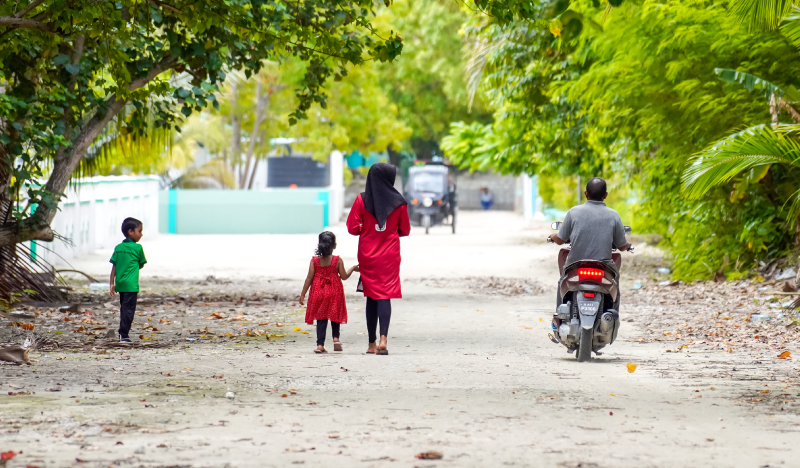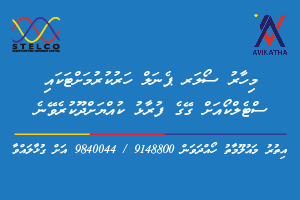IWD: A Look at the Data Behind Gender Equality in the Maldives

Photo: MV+
As the world commemorates International Women’s Day, Maldives Bureau of Statistics has shared some valuable and quantitative insight into gender dynamics in the Maldives through data collected from Census 2022.
The Maldives has made significant strides in social, economic, and political realms. Notably, the nation has surpassed expectations by achieving five out of the eight Millennium Development Goals (MDGs) ahead of schedule, effectively eradicating poverty and positioning itself as a middle-income country. However, amidst these accomplishments, gender inequality remains a pressing issue, standing out as one of the three remaining MDGs yet to be fully realised.
The Census 2022 data reveals both promising and disappointing results regarding the status of women in Maldives. While women have progressed in some areas, other aspects such as employment opportunities still require more attention. To better understand the gender dynamiscs within Maldives, let’s take a look at the data and discuss its implications.
Population Composition and Citizenship
Let’s start with the foundational demographics. The census reveals that out of the total population of 515,132, a significant portion comprises resident Maldivians, numbering 382,639. Among them, the gender distribution stands at 194,562 males and 188,077 females. Additionally, 132,493 residents are foreigners, with 117,432 males and 15,061 females.
Delving deeper into citizenship, 93% of women in the Maldives hold Maldivian citizenship.
Despite comprising nearly half of the Maldivian citizen population, gender disparities persist in areas such as employment and disability.
Education and Literacy
Education serves as a cornerstone of empowerment for women. The census data unveils encouraging trends in educational attainment, with a significant number of women enrolled in higher education institutions.
Moreover, literacy rates paint a positive picture, with 98.6% of the population being literate in Dhivehi, the native language of the Maldives. Interestingly, women boast a slightly higher literacy rate of 98.7% compared to men. However, there’s room for improvement in English literacy, with 82.6% of the population being literate in English.
Disability and Health
Disability is a critical aspect of gender equality, and the census sheds light on the prevalence of disability among women in the Maldives. Of the resident population, 6.9% are Persons with Disabilities (PWDs), with a higher proportion of women (7.8%) compared to men (6.1%). Mobility issues pose a significant challenge for PWDs, with women disproportionately affected, highlighting the need for inclusive policies and infrastructure to support their mobility and participation in society.
Employment and Economic Empowerment
Economic empowerment is essential for gender equality, yet disparities persist in the labour market. While women constitute 49.3% of the working-age population, their participation in the workforce is lower compared to men.
The employment ratio reveals 75.9% of men being are employed compared to only 45.4% of women. Women bear the brunt of caregiving responsibilities and domestic chores, often hindering their participation in economic and political activities at par with men.
Moreover, women are underrepresented in managerial positions, comprising only 23% of such roles.
In key sectors like tourism, where employment opportunities abound, women face significant barriers, with only 11% of working-age women employed compared to 89% of men.
Similarly, the industrialisation of fish processing has marginalized women from the fishing industry, compounded by the influx of expatriate labour. Consequently, women face disproportionately high levels of unemployment and economic inactivity.
The NEET (Not in Education, Employment, or Training) rate further underscores the challenges faced by women, with 22% of women classified as NEET compared to 17% of men. Unemployment rates are also higher for women, standing at 6.2% compared to 4.5% for men.
Historically, women have been instrumental in advancing Maldivian society, from traditional roles such as producing thatch and rope for housing to nurturing the next generation. Harnessing women’s talents and skills across all spheres of life is essential for sustained progress of the country as without gender parity, the nation risks falling short of realising its full potential.
Marital Status and Social Dynamics
Marriage and family dynamics play a crucial role in shaping women’s lives. The census data reveals a diverse range of marital statuses among women, with 67% currently married, 18% never married, 5% widowed, and 10% divorced. These statistics reflect the changing social norms and the evolving roles of women in Maldivian society, highlighting the need for policies that support women across different life stages.
Household Decision-Making
Another significant aspect of gender dynamics highlighted in the census is household decision-making. The head of household, classified in the census as the person in charge of all household decisions, reflects prevailing gender norms.
Gender-based violence against women remains a pervasive issue, deeply entrenched in the aforementioned societal norms and attitudes against women. Shockingly, one in three women aged between 15 and 49 has experienced physical and/or sexual violence, with intimate partner violence and childhood abuse being alarmingly prevalent. Despite legal frameworks such as the Family Law and the Penal Code, enforcement remains a challenge, with sharia law prevailing in the judiciary.
In the Maldives, the data indicates that more men act as heads of households than women. This disparity in household leadership underscores broader societal dynamics and the need for initiatives promoting women’s participation in decision-making processes at the household level.
Conclusion
As we reflect on the data unveiled by the Population and Housing Census 2022, it’s clear that while progress has been made towards gender equality in the Maldives, significant challenges persist. Empowering women requires concerted efforts across multiple fronts, including education, healthcare, employment, and social policies. By leveraging the insights gleaned from the census data, policymakers and stakeholders can devise evidence-based strategies to advance gender equality and create a more inclusive and equitable society for all. As we celebrate International Women’s Day, let us reaffirm our commitment to championing the rights and empowerment of women, guaranteeing that every woman in the Maldives has the opportunity to thrive and fulfil her potential.










